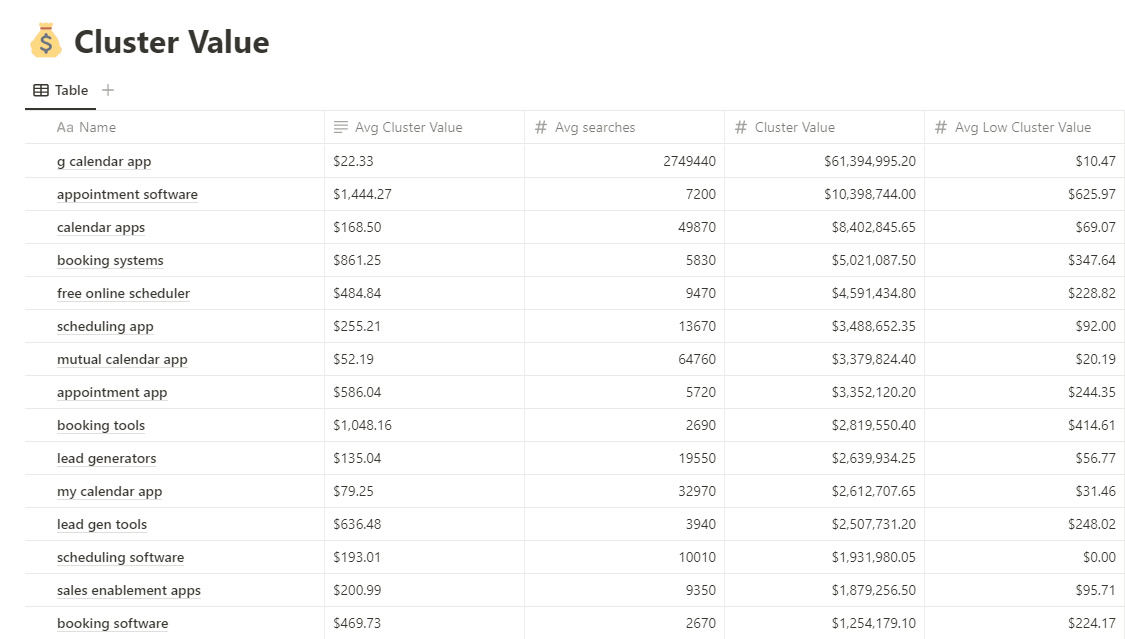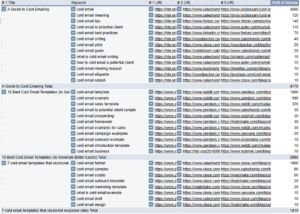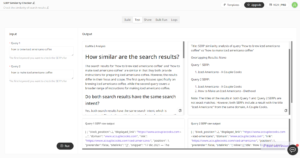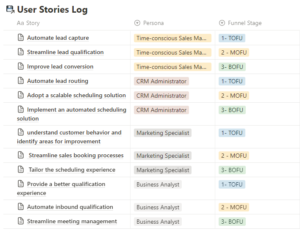Modern keyword research methods usually include some kind of clustering or grouping. Which is essentially categorizing keywords into semantically related groups.
The problem with clustering is that it’s often difficult to determine which groups of keywords, or clusters, should be prioritized.
When you’re looking at a spreadsheet or table with thousands of keywords, it’s hard to figure out which clusters are going to be the most important for your SEO strategy.
Sure, you could combine all the traffic for each group and use that as a baseline, but the highest volume clusters aren’t always going to be the most relevant.
This is why adding a Cluster Value is a handy method you can use to help prioritize which clusters to target.
What are keyword clusters?
Keyword clusters are keywords grouped into common themes. Two similar keywords or search terms may net the exact same or very similar search results.
SEOs aim to reduce redundancy by grouping these keywords together into a cluster. This avoids keyword cannibalization, and helps us figure out which pages we actually need to make to cover our list of identified keywords from earlier keyword research.
Check out my guide on incorporating SERP scraping and NLP to cluster your keyword list.
Use those ignored CPC data columns
Sure you could just sum all the search volume for specific keyword clusters, but I think that just looking at the traffic isn’t enough.
The highest traffic clusters are often broader topics with much higher competition.
I like to use CPC data and search volume to determine how much a cluster is worth.
CPC data adds a whole layer of value to help prioritize keyword clusters. The best part is most of this CPC data is already included in keyword research tools like Google Keyword Planner, Ahrefs, SEMrush, and Answer the Public.

In my table above, “booking systems” have a relatively low volume compared to some of the other clusters, but the cluster value is high. Because the keywords in this cluster have high CPC costs, this indicates that this cluster contains a lot of competitive terms that are likely to generate revenue if targeted. Advertisers wouldn’t be paying the higher CPC costs if there wasn’t a good ROI on those keywords.
The goal isn’t to do math
While this is technically math, the goal of cluster value is not to find the exact dollar amount the cluster is worth in ad costs. The math is way off for that, and keyword tools aren’t even very accurate.
The goal is simply to sort and prioritize clusters to inform the next steps like keyword mapping and site architecture.
Cluster value helps find the most valuable clusters quickly and easily, which is especially useful for large data sets.
How I do cluster value
You can use whatever formula you want to determine your cluster value. What’s important here is that you’re assigning some kind of numerical value to your keyword clusters to help prioritize them.
In my example, the Cluster value is calculated by taking the Avg. Cluster value and multiply it by Avg. searches.
And the Avg. Cluster value is just the average between low cluster value and high cluster value:
- Low cluster value = Summed low CPC for keywords in that cluster
- High cluster value = Summed high CPC for keywords in that cluster
Cluster value template
My SEO roadmap template for Notion includes a cluster value table, so you can easily add cluster values to help you sort and prioritize your keyword clusters.
This makes the next steps like mapping keywords to pages much easier.
Check out my SEO Roadmap template on Gumroad to get instant access.



